Can a Labrador Eat Bacon?
Date Published: February 12, 2024 | Last Modified: February 16, 2024
Let's set the record straight from the start - labradors can indeed indulge in some bacon. In this article, we will delve into the health benefits that bacon can offer to our beloved furry friends, as well as examine the pros and cons of incorporating bacon into their diet. Safety concerns will be addressed, highlighting whether there are any risks involved in feeding bacon to labradors. Additionally, we will explore whether bacon is toxic to these lovable companions and ultimately determine if it can be a nutritious addition to their meals.
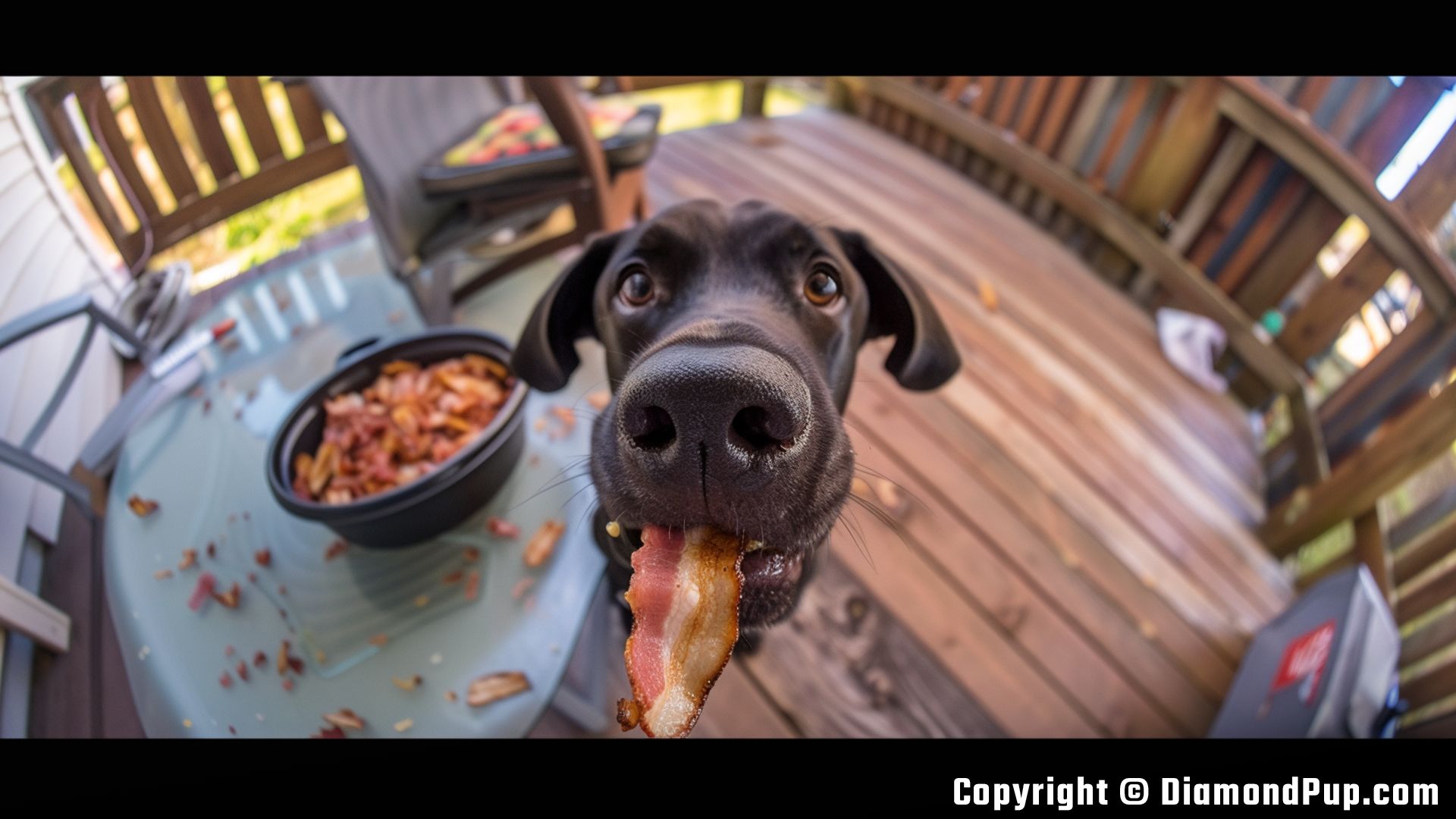
Are Bacons Good for Labradors?
Labradors can enjoy bacon as an occasional treat due to its high protein content, which is beneficial for their muscle development and overall health. However, it is important to remember that bacon is also high in fat and sodium, which can lead to obesity and other health issues if fed in excess. When feeding bacon to your Labrador, it is crucial to opt for lean, low-sodium varieties and to ensure it is cooked thoroughly to eliminate any harmful bacteria that could make your pet sick.
Additionally, it is recommended to feed small amounts of bacon as a special reward rather than a regular part of their diet. Always consult with your veterinarian before making any significant changes to your dog's diet, including the introduction of bacon, to ensure it aligns with their individual nutritional needs and overall well-being.
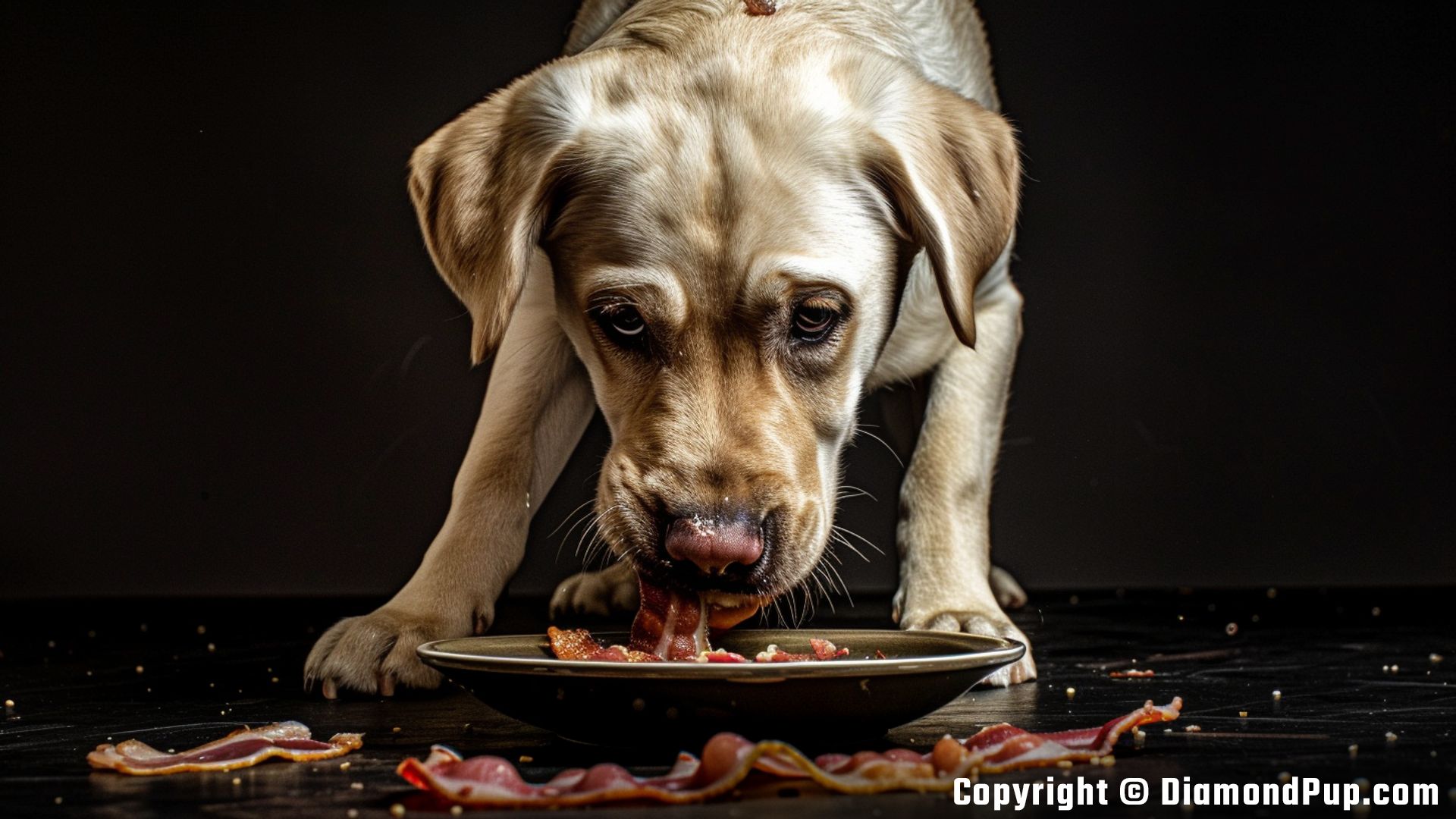
Understanding the Benefits of Bacons for Labradors
Labradors can benefit from the high protein content found in bacon, which is essential for muscle maintenance and growth. Protein is made up of amino acids, which are the building blocks of cells, tissues, and organs in a dog's body. Additionally, bacon contains important vitamins and minerals such as phosphorus, zinc, and selenium, which play a crucial role in supporting the overall health and well-being of Labradors.
However, it is important to note that while bacon can be a tasty and nutritious treat for Labradors when given in moderation, it should not be a staple in their diet. Too much bacon can lead to health issues such as obesity, pancreatitis, and gastrointestinal upset. It is always best to consult with a veterinarian to determine the appropriate amount of bacon to incorporate into your Labrador's diet based on their individual needs and dietary requirements.
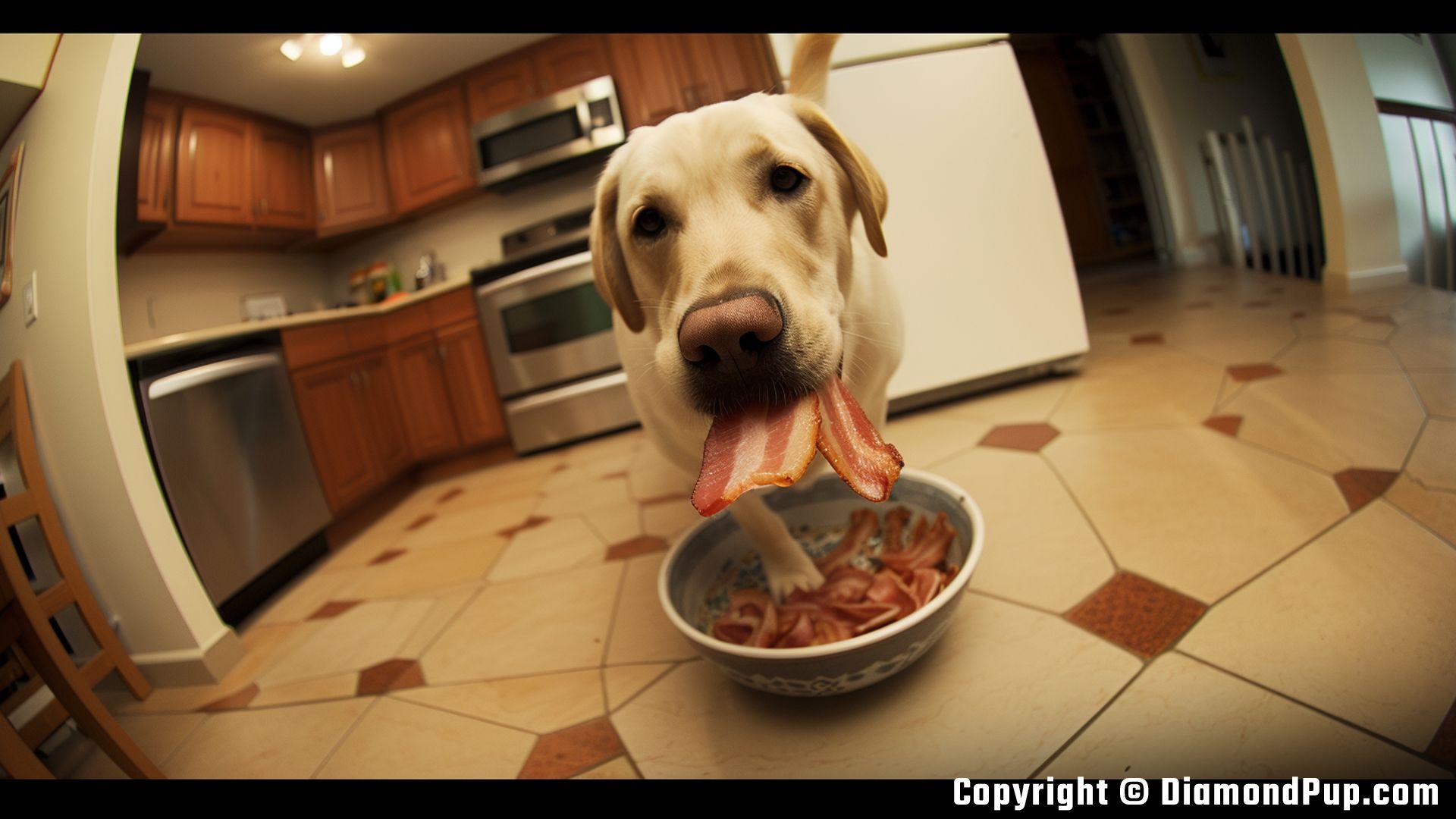
Nutritional benefits of Bacons for Labradors
Labradors can benefit from the occasional treat of bacon due to its high protein content. Protein is essential for muscle growth, repair, and overall body functioning in dogs, making it an important component of their diet. Additionally, bacon contains amino acids that are necessary for your Labrador's overall health and well-being. People also ask about the health benefits of bacon for beagles, exploring how this popular treat may impact different breeds.
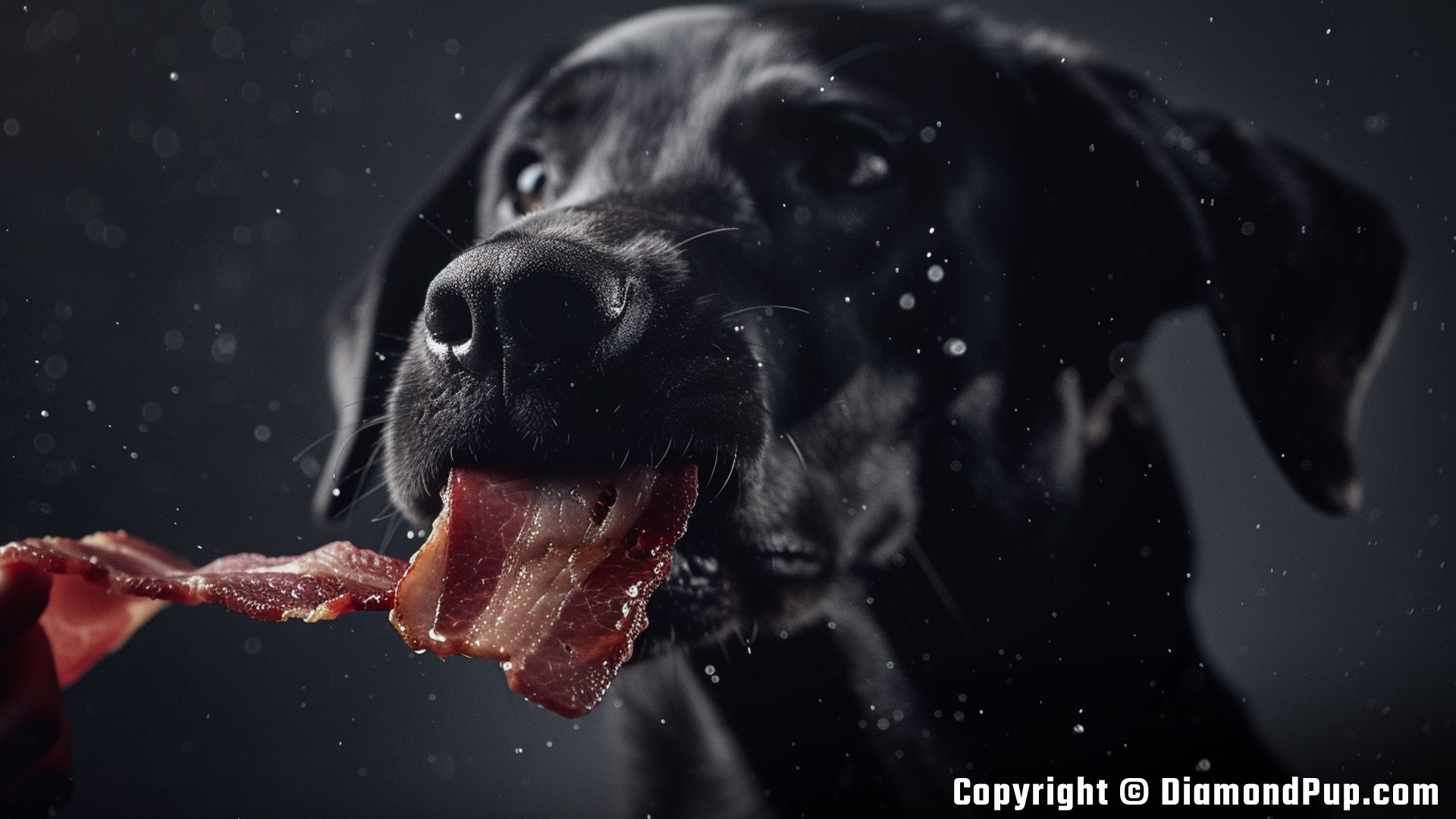
Safely Introducing Bacons to Your Labrador's Diet
When introducing bacon to your Labrador's diet, it is important to do so in moderation. Start by offering small amounts of cooked, lean bacon to assess how your dog reacts to it. Monitor for any signs of gastrointestinal upset, such as vomiting or diarrhea. It is also crucial to remove any excess fat or seasoning from the bacon before feeding it to your Labrador, as these additives can lead to digestive issues. Additionally, be mindful of your dog's overall calorie intake to prevent weight gain, as bacon is a high-fat treat that can contribute to obesity if given excessively.
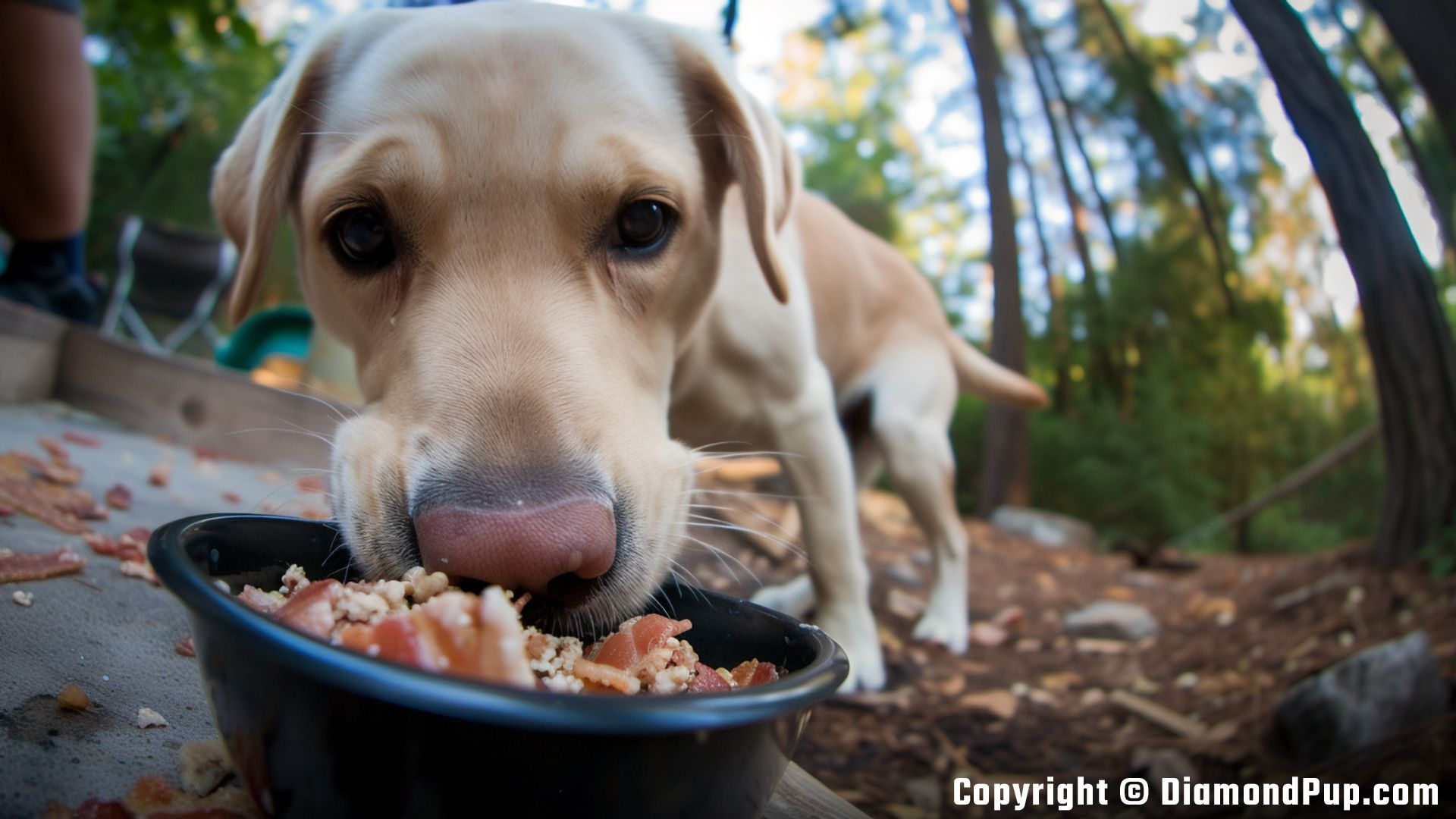
How much bacon can a dog eat safely?
When it comes to feeding bacon to your Labrador, moderation is key. While bacon can be a tasty treat for your furry friend, it is important to remember that it is high in fat and sodium, which can be harmful in large amounts. As a general guideline, bacon should only make up a small portion of your dog's overall diet. It is recommended to limit the amount of bacon to no more than a few small pieces per week, depending on your dog's size and overall health. It's always best to consult with your veterinarian to determine the appropriate amount of bacon that is safe for your Labrador to consume.
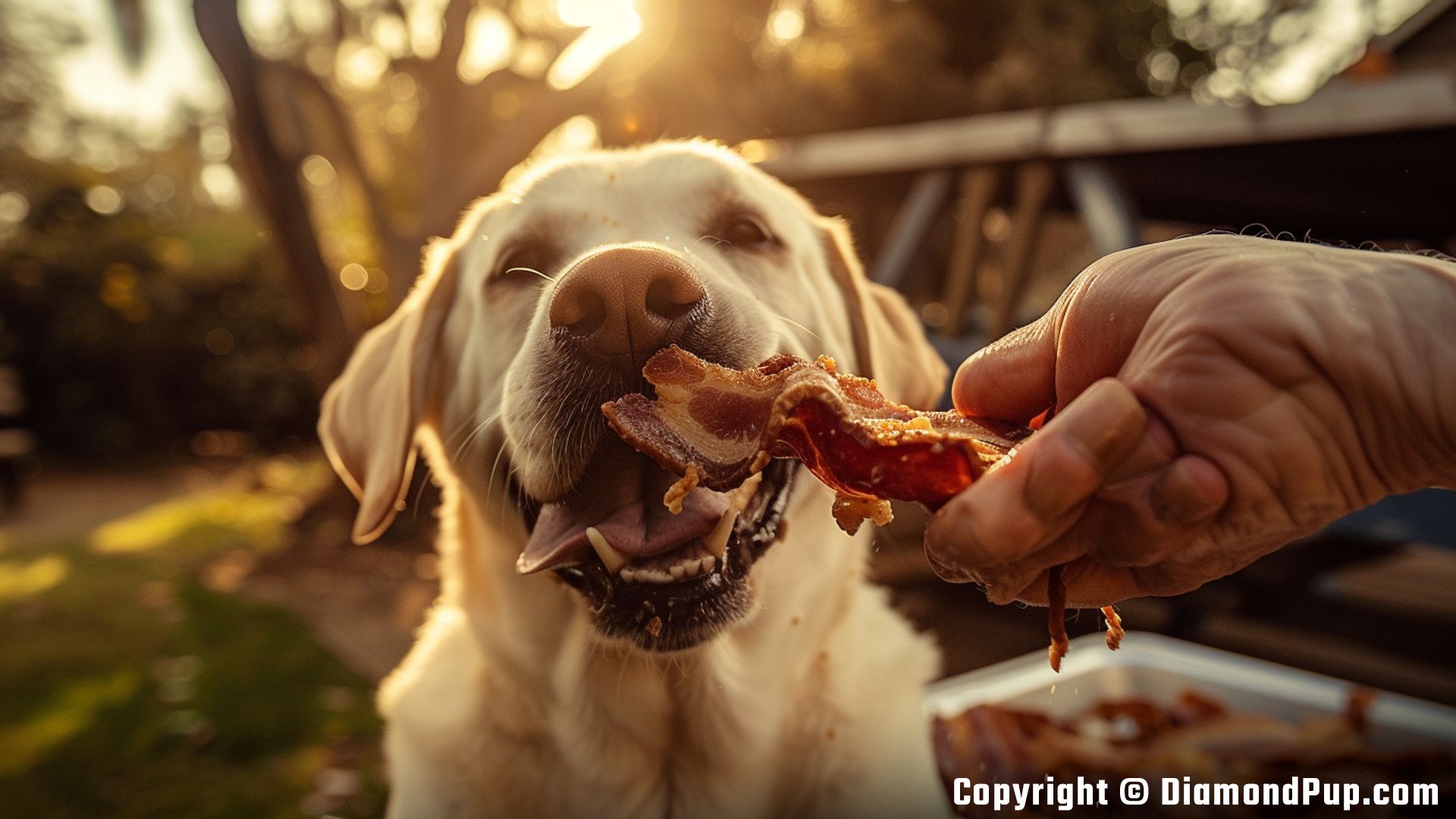
Tips to Remember When Feeding Your Dog Bacons
When feeding your Labrador bacon, it is important to do so in moderation. While bacon can be a tasty treat for your furry friend, it should not make up a significant portion of their diet. Too much bacon can lead to weight gain and other health issues in Labradors, such as pancreatitis. It is best to offer bacon as an occasional snack or a special reward during training sessions, rather than as a regular meal replacement.
Additionally, when giving your Labrador bacon, make sure it is cooked thoroughly and served in small pieces to prevent choking hazards. Remove any excess fat or seasonings from the bacon before offering it to your dog, as these can be difficult for them to digest. Always consult with your veterinarian before making any significant changes to your dog's diet, including incorporating bacon as a treat.
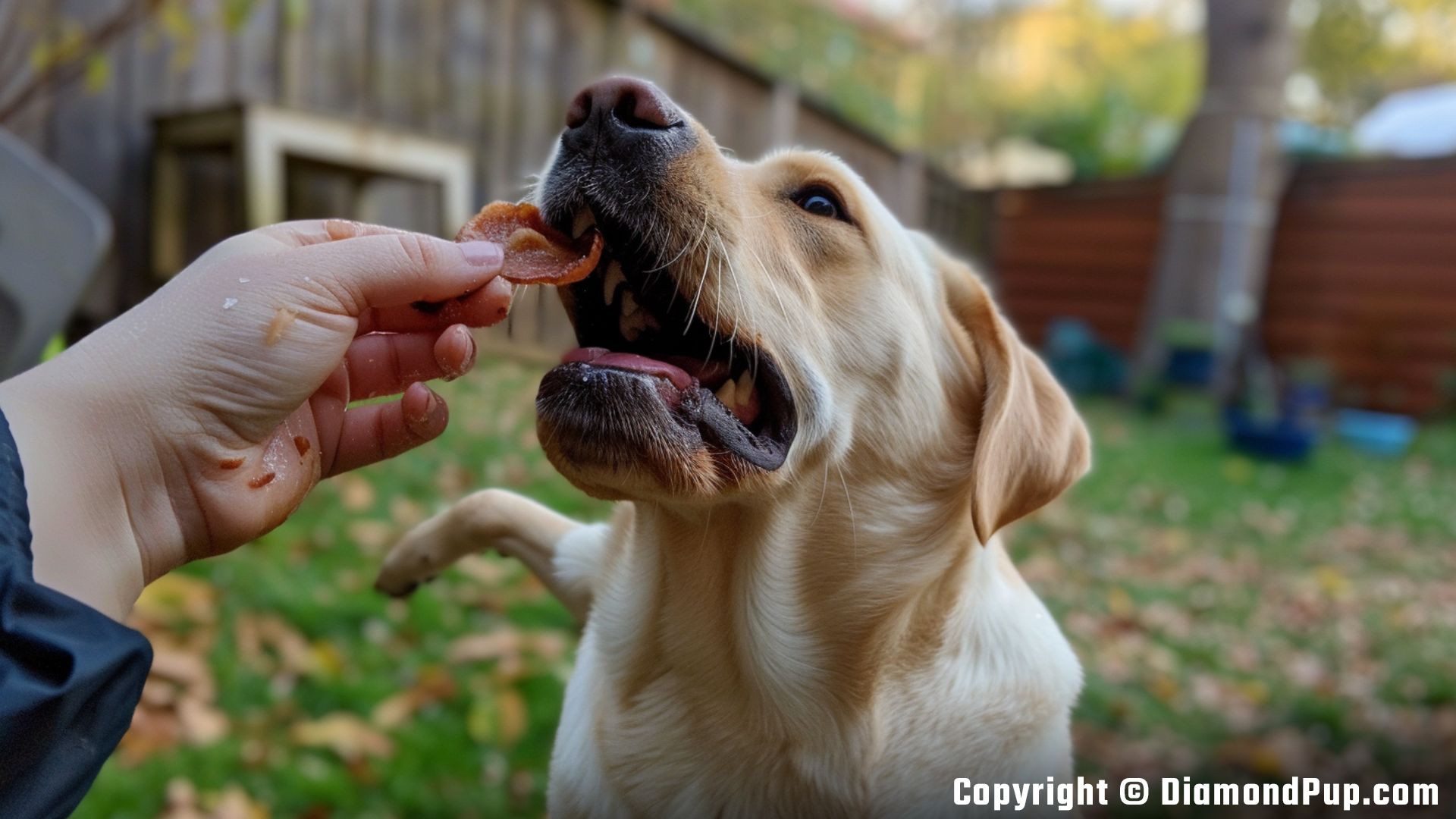
Feeding Your Dog Bacons
When it comes to feeding your Labrador bacon, it's important to do so in moderation. While bacon can be a tasty treat for your furry friend, it should not make up a significant portion of their diet. Labradors are prone to obesity, so it's crucial to ensure that their calorie intake is balanced and that they are receiving all the necessary nutrients from their main diet. Additionally, it's essential to opt for low-sodium and low-fat bacon options to minimize the risk of any potential health issues such as gastrointestinal upset or pancreatitis.
Furthermore, it's best to offer bacon as an occasional treat rather than a daily staple. This will help prevent any digestive issues and ensure that your Labrador is maintaining a healthy weight. Remember, a well-rounded diet consisting of high-quality dog food specifically formulated for Labradors is the best way to keep your furry friend happy and healthy.
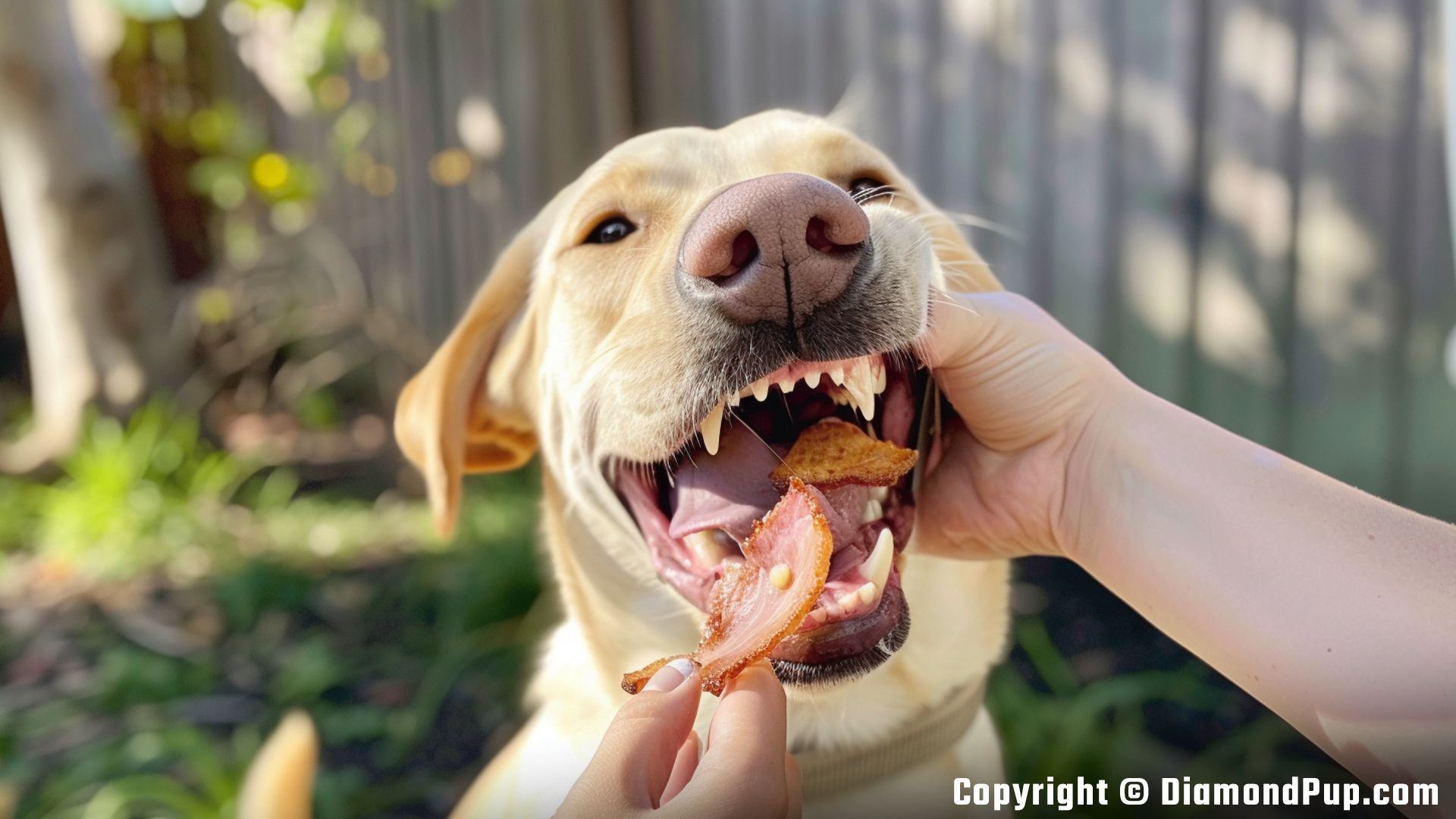
How to properly feed your dog Bacons
When it comes to feeding your Labrador bacon, moderation is key. While bacon can be a tasty treat for your furry friend, it should only be given in small quantities and as an occasional snack. Too much bacon can lead to weight gain and other health issues like pancreatitis due to its high fat content. It's important to remember that bacon should not replace your dog's regular balanced diet. Instead, it should be seen as a special reward or treat to be given sparingly.
When selecting bacon for your Labrador, opt for lean and unseasoned varieties to minimize the risk of digestive upset. Avoid feeding your dog bacon that is high in sodium, as it can be harmful to their health. Additionally, always ensure that the bacon is fully cooked to reduce the risk of bacterial contamination. By following these guidelines, you can safely incorporate bacon into your Labrador's diet as an occasional indulgence.
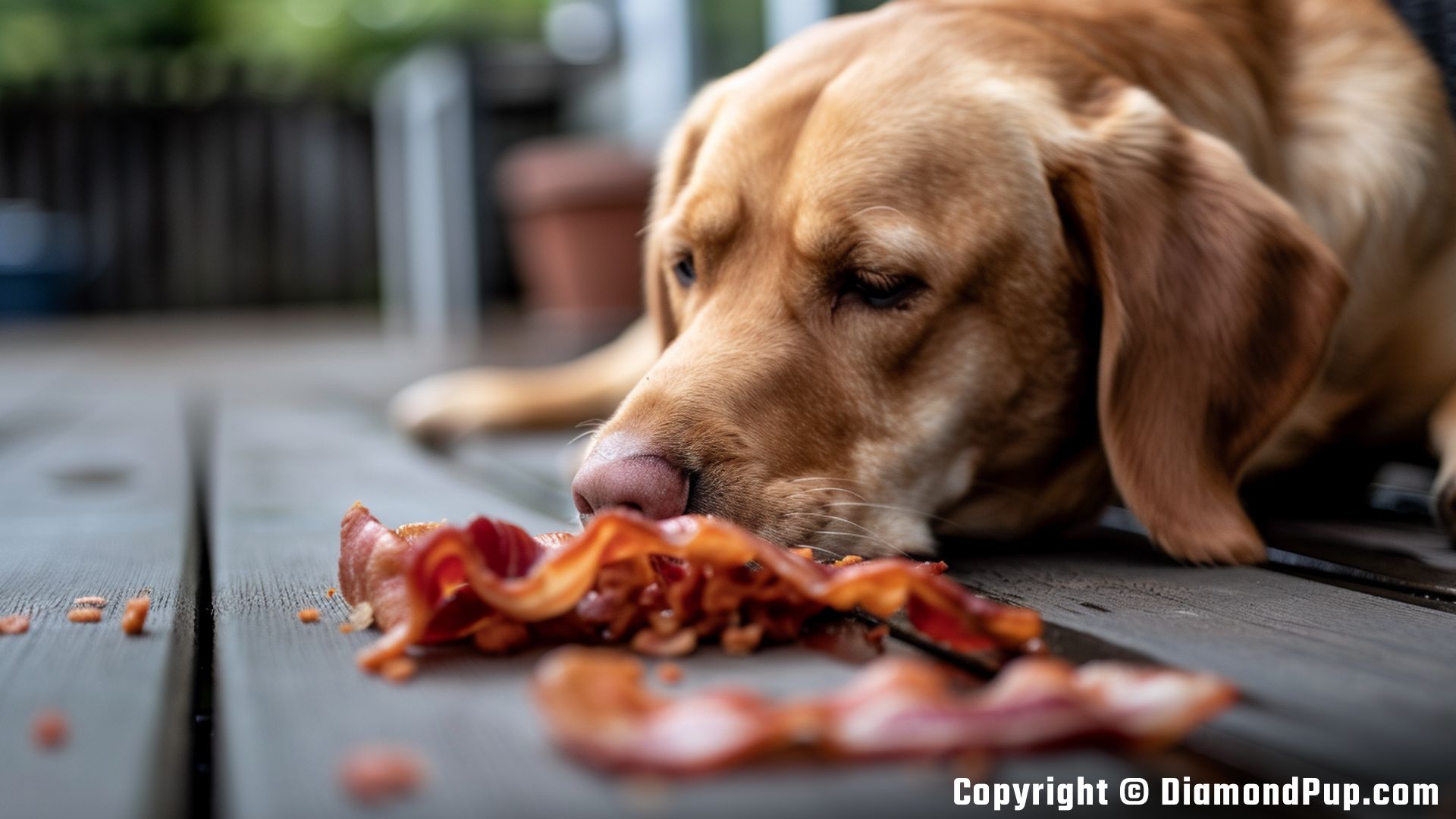
Do Labradors Like Bacons?
Labradors are known for their hearty appetites and love for food, and bacon is no exception. The rich, savory aroma of cooked bacon is often irresistible to these food-loving pooches, making it a highly desirable treat. Labradors typically enjoy the taste and texture of bacon, finding it to be a flavorful addition to their meals.
However, it's important to remember that moderation is key when feeding bacon to Labradors. While they may love the taste, bacon should only be given as an occasional treat due to its high levels of fat and salt. Too much bacon can lead to obesity, pancreatitis, or other health issues in Labradors. So, while your furry friend may adore the taste of bacon, it's crucial to limit their consumption to keep them healthy and happy.
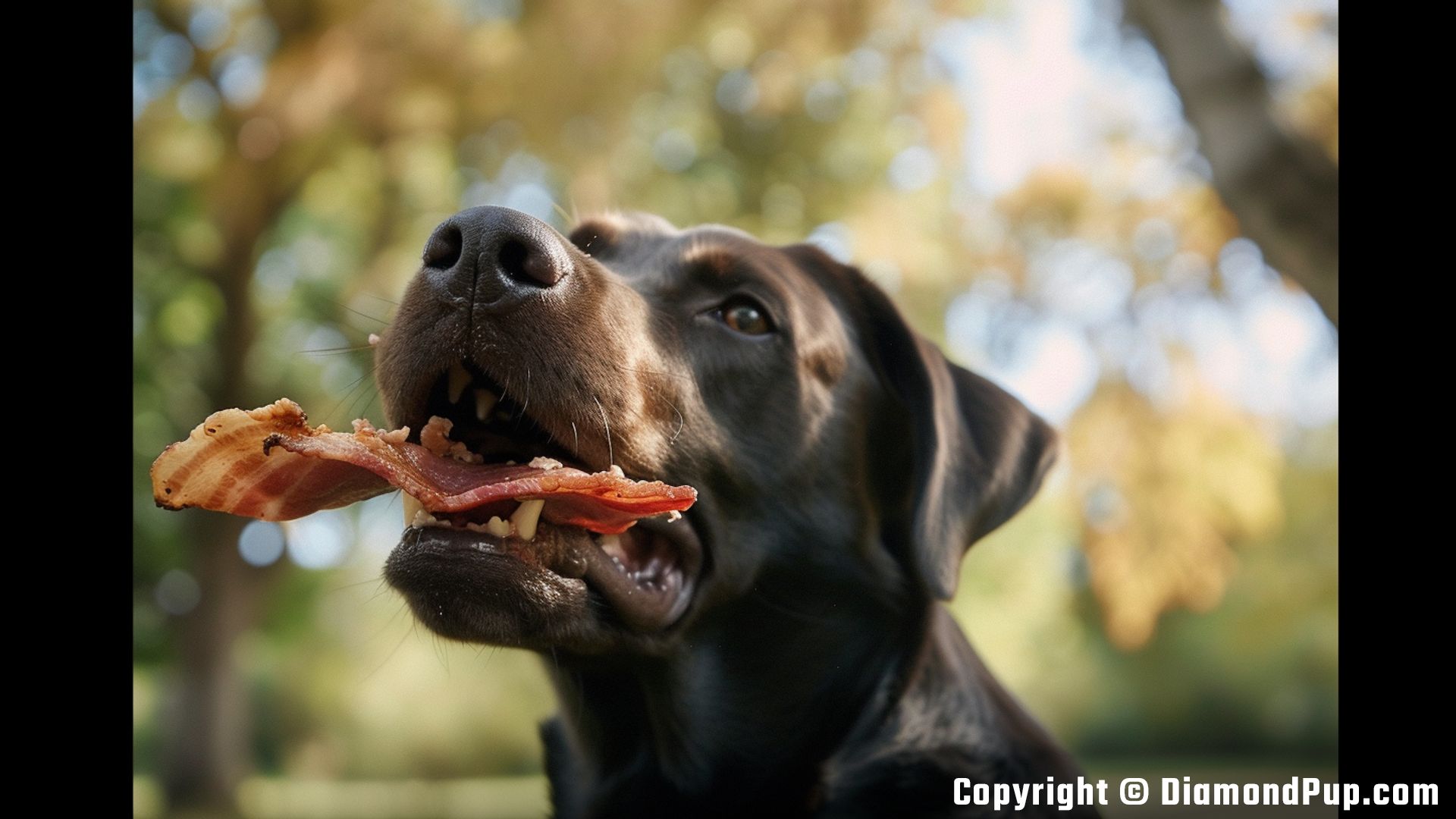
Special Consideration for Labradors
Labradors are known for their hearty appetites and tendency to gain weight easily, so special consideration should be taken when feeding them bacon. Due to their high energy levels, labradors can handle slightly higher fat content in their diet compared to other breeds. However, it is important to balance this with regular exercise to prevent obesity and related health issues. When feeding bacon to labradors, opt for lean cuts and avoid excessive seasoning or additives like salt and spices, which can be harmful to their health.
Furthermore, moderation is key when it comes to incorporating bacon into a labrador's diet. While a small amount of cooked, unseasoned bacon can be a tasty treat for your furry friend, it should not make up a significant portion of their daily food intake. Always consult with your veterinarian or a pet nutritionist to ensure that your labrador's diet is well-balanced and meets their individual nutritional needs.

Can Puppies Have Bacons?
Labrador puppies can have bacon in moderation, but it is important to be cautious. Puppies have developing digestive systems that may be more sensitive to rich and fatty foods like bacon. Excessive consumption of bacon can lead to gastrointestinal upset, including symptoms like vomiting and diarrhea.
It is best to offer small amounts of cooked, unseasoned bacon as an occasional treat for labrador puppies. Make sure to trim off any excess fat to reduce the risk of digestive issues. Always consult with your veterinarian to ensure that bacon can be safely incorporated into your labrador puppy's diet, taking into consideration their individual health needs and dietary requirements.

Are there any Labradors that shouldn't eat Bacons?
Labradors that have specific health conditions such as pancreatitis, obesity, or gastrointestinal issues should avoid consuming bacon. Pancreatitis is a condition where the pancreas becomes inflamed, and the high fat content in bacon can exacerbate this condition. Obesity is a common issue in Labradors, and bacon is a high-calorie food that can contribute to weight gain if not given in moderation. Furthermore, dogs with sensitive stomachs or a history of gastrointestinal problems may experience digestive upset when given bacon due to its rich and fatty nature. People also ask is it safe for a boxer to eat bacon in the context of these concerns. For these Labradors, it is best to consult with a veterinarian to determine a suitable diet plan that meets their specific health needs.
Recipes for Feeding Your Dog Bacons
When it comes to choosing the right bacon for your Labrador, it's crucial to opt for lean, low-sodium bacon varieties. Look for bacon that is free of any additives, such as artificial flavors, preservatives, or seasonings, as these can be harmful to your dog's health. Additionally, ensure that the bacon is cooked thoroughly to eliminate any harmful bacteria that may be present. People also ask can a husky eat bacon - something to consider when thinking about canine diets. It's best to feed bacon to your Labrador in moderation and as an occasional treat, rather than a daily staple in their diet.
Alternatives to Bacons for Labradors
While labradors can enjoy bacon in moderation, it's important to consider healthier alternatives to incorporate into their diet. Instead of feeding bacon as a regular treat, you can opt for lean meats such as skinless chicken or turkey. These protein sources are lower in fat and can still provide the necessary nutrients for your labrador's overall health. Another great option is to offer fruits and vegetables as treats, such as carrots, green beans, or apples. These options are high in fiber and vitamins, offering a nutritious snack for your furry friend.
When choosing alternatives to bacon for your labrador, it's crucial to avoid foods that are toxic to dogs, such as grapes, raisins, onions, and garlic. These items can be harmful and should be strictly avoided in your dog's diet. By selecting appropriate substitutes for bacon and being mindful of your labrador's overall nutritional needs, you can ensure that they stay healthy and happy for years to come.
Common Questions About Labradors and Bacons
One common question that arises when it comes to labradors and bacon is whether the fat content in bacon is safe for them to consume. While labradors are known for their love of food, including bacon, it is important to moderate their intake due to the high fat content in this delicious treat. Excessive consumption of bacon can lead to obesity and gastrointestinal issues in labradors, so it is best to offer it as an occasional special treat rather than a regular part of their diet.
Another question that Labrador owners often have is whether the salt and seasoning in bacon can be harmful to their furry friends. It is crucial to opt for unsalted or low-sodium bacon when sharing it with your labrador, as high levels of salt can be detrimental to their health. Additionally, avoid bacon that is heavily seasoned or cured with ingredients that may be toxic to dogs, such as garlic or onion powder. Always check the ingredients list and choose a high-quality, natural bacon to ensure the safety of your beloved labrador.
Subscribe Now
Stay updated with the latest news and articles! We'll keep you updated on the latest tips for your pet Labrador
